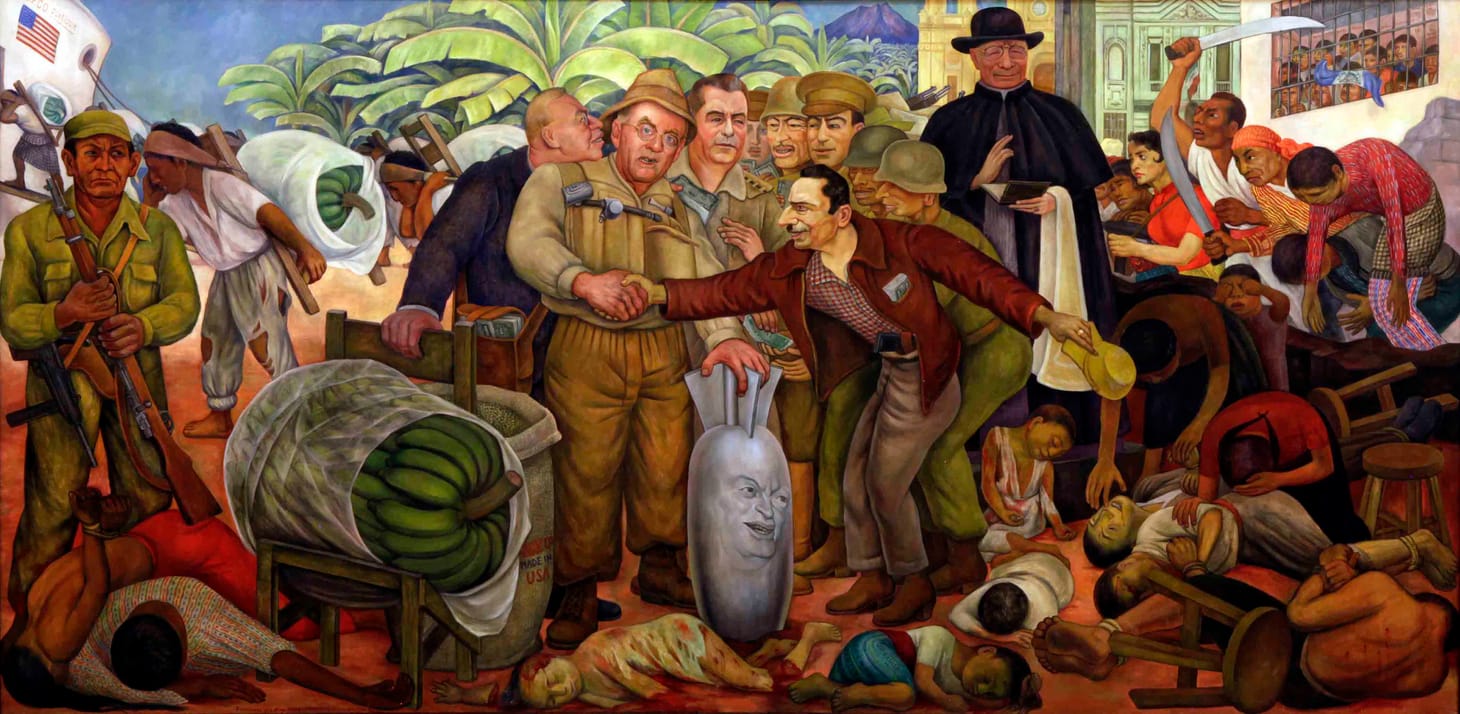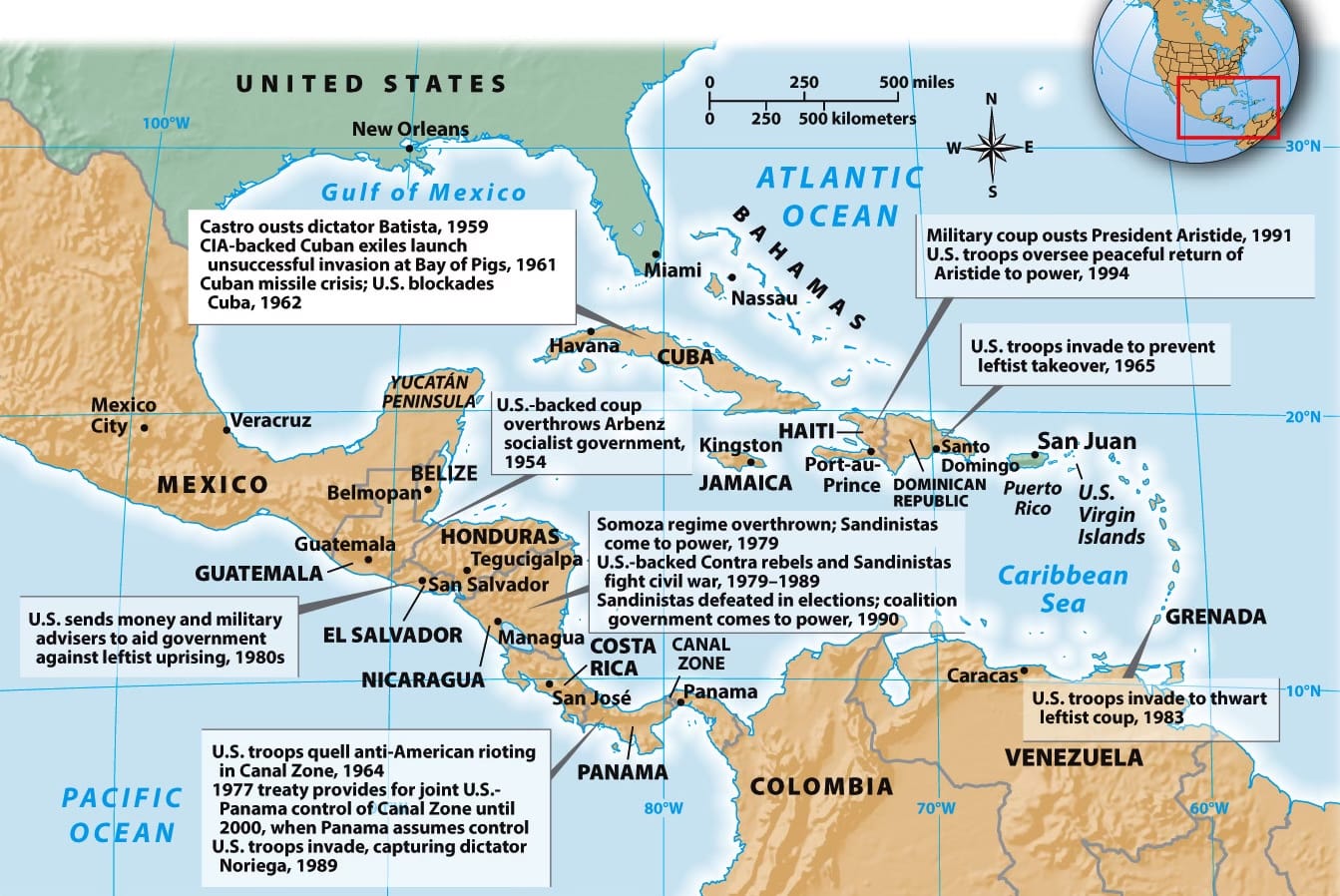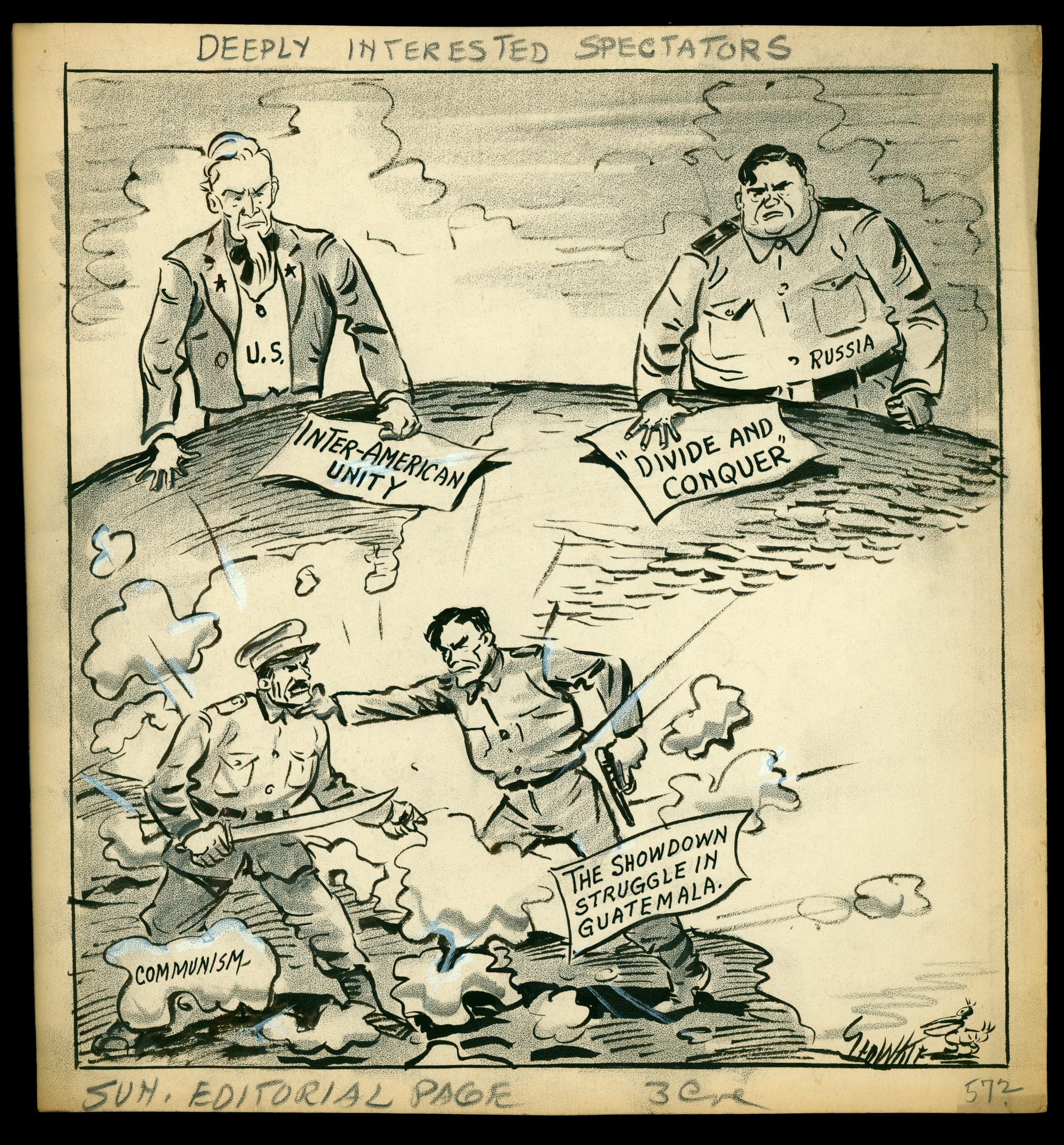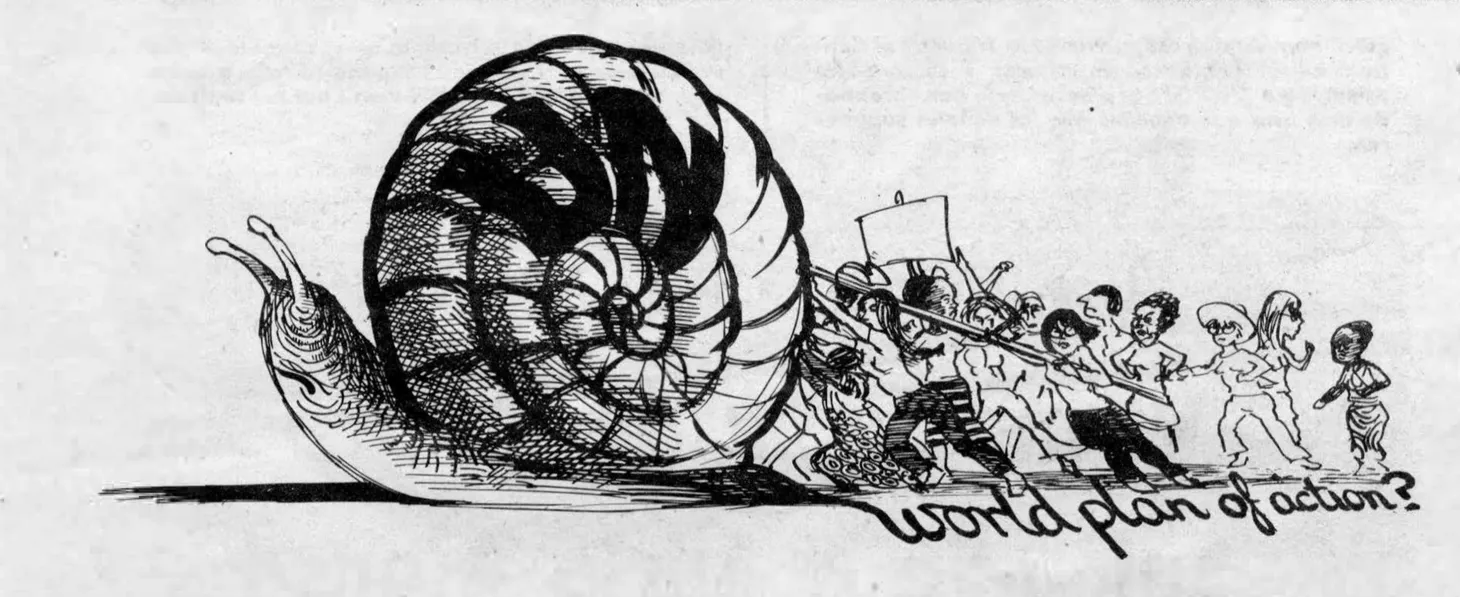“Improve the Quality of Life of the Majority of Its People”: Integrating Indigenous Perspectives in the Teaching of Guatemala and the Cold War
Discussion of how to integrate Indigenous experiences into teaching the Cold War

Most world history teachers discuss “proxy wars” when teaching about the Cold War. Some teachers might also mention American military interventions in the twentieth century. In either case, we tend to frame these topics as “effects of the Cold War.” What matters is how a supposedly American-Soviet Cold War spilled over into other parts of the world. An ideal example is the 1954 American-backed coup in Guatemala.


Left: Map of American military interventions in the second half of the twentieth century in Latin America. Source: History of World Societies. Right: Cartoon from The Tampa Tribune about the conflict in Guatemala. Source: University of South Florida.
The problem with this framing of the 1954 coup is that Guatemalans are simply pawns in an American-Soviet rivalry. Students don’t understand why there were tensions in Guatemala or how different Guatemalans understood those tensions. In this post, I will reflect on what I previously wrote about teaching Indigenous history. I will also discuss how we can provide historical context to the 1954 American coup and include the significant role of Indigenous Guatemalans.
What I Liked
This content is for Paid Members
Unlock full access to Liberating Narratives and see the entire library of members-only content.
SubscribeAlready have an account? Log in



